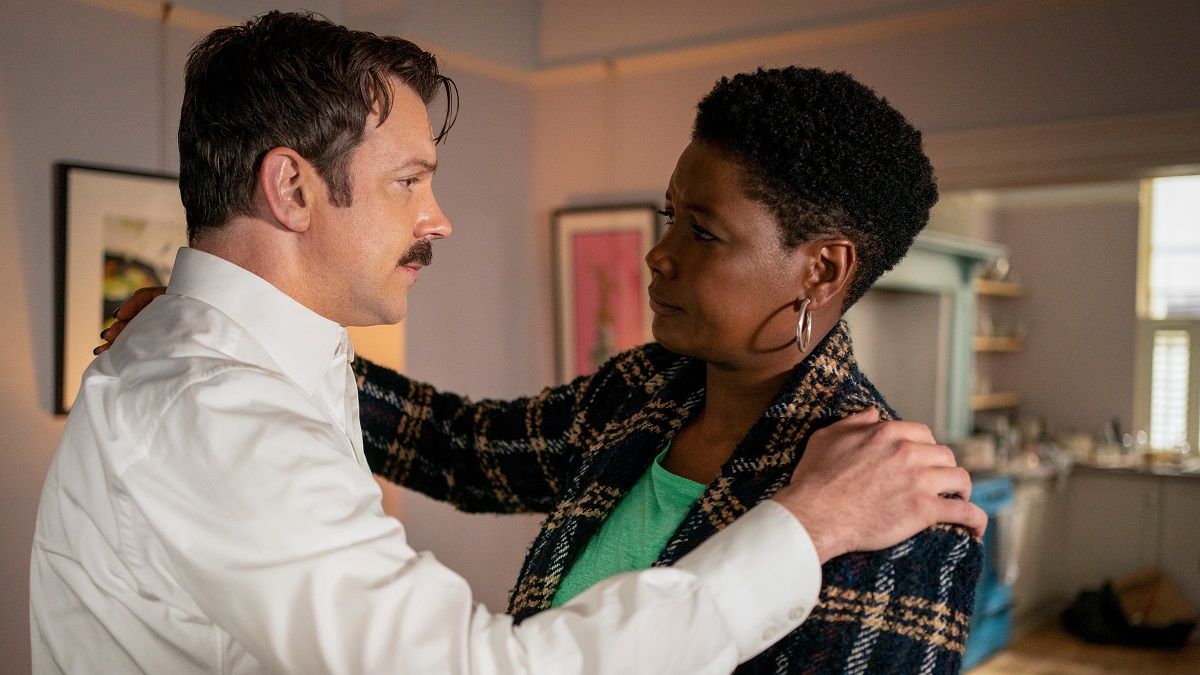
You've Got to Earn It
Like so many screenwriters, I’ve spent the last year deeply obsessed with the Apple TV show "Ted Lasso." An obsession which worsened the moment Season Two started in July. Every week I sat down and enjoyed an episode and then re-watched it until the next week. About halfway through the season, I heard criticism that nothing was happening. There was no conflict and the season felt slow.
And then Episode 8, "Man City," happened.
I’m not ashamed to say the episode hit me hard. I’m not sure I can ever watch it again because of one line—Ted's revelation of how his father passed. I sobbed, finished the episode, sobbed some more, then tried to get my mind off the episode.
The thing was, I couldn’t.
I spent a week thinking about it. Such a simple moment, such a simple line of dialogue ... but it hit like a freight train. It’s a moment filmmakers dream about giving to their audience. Something that stays with you for hours and days after you’ve finished an episode or left a movie theater. I can say with conviction I’ve never seen it done as well as "Ted Lasso."
But what exactly did the writers do?
They earned that moment.
If you’ve ever gotten notes, you know exactly what the phrase means and your back might immediately tense. I, personally, have a love-hate relationship with that phrase. I believe it’s one of the most important things we have to do in our scripts, it’s one of the hardest things to do, and it’s one of the things that is usually pushed to the back burner.
So, what does “earning it” mean, and how do we achieve it?
At first glance, that question is another great example of how screenwriting solutions are never easy. I did a quick Google search and consulted the usual blogs to see their takes on “earning a moment,” or movie moments. They’re the moments we remember from the movie. They’re the emotional breakdowns of a character, the couple’s first kiss, or the character choosing the path we’ve been begging them to pick for the last hour and half. Those moments have to earn their spot in our audience’s memory. We can’t just set them in the script and expect the audience to go along with it.
Those moments have to be set up.
Sticking with "Ted Lasso," let’s look at how we got to Season 2, Episode 8. Through Season One, we see Ted as this impossibly positive person. It’s a positivity that is endearing, and we watch over the course of the season as everyone who’s rooting against him comes over to his side. Halfway through Season One, we find out his father has passed, and a few episodes later, Ted has his first panic attack. As an audience, we know something's wrong, but we don’t know what it is.
Instead of giving us our moment at the end of Season One, the writers give us more time to connect with Ted.
Now follow that into Season Two, which immediately focuses on almost every character’s mental health. We watch as the characters connect with Doctor Sharon, yet Ted keeps her at arm’s length. Ted’s mental health slowly declines. The audience has no idea what’s going on with Ted, but because of Season One, we’re invested in him. Ted’s health gets so bad that he has a panic attack and leaves a game, forcing him to open up to Doctor Sharon.
However, this isn’t our moment. This is the final piece the writers set up that allows them to earn the scene where Ted reveals his trauma, his dad’s death. That’s the moment that sticks. It tells us everything we need to know about Ted and connects us to him in a way we haven’t connected before.
That moment took 18 episodes to earn. What it all comes down to is that to earn moments, we have to set things up. And set up takes time. Could the reveal of how Ted’s dad died worked at the end of Season One? Yeah, easily. Would it have had the same impact? No.
As an audience we were completely attached to Ted, but his deteriorating mental health wasn’t set up. Watching him spend a season in crisis and his positivity begin to crack makes the moment where he reveals his trauma something that will stay with viewers long after the show ends.
"Ted Lasso" waited to give their audience a catharsis—pick your moments.
These instances are often jaw-dropping. They give us a sense of shock and can hook us to come back after a commercial break. So there can be the temptation to move these moments up. Bring it to the Act 1 break and shock everyone watching.
I would encourage you to take a beat.
Does the benefit of moving this moment up, hooking the audience, outweigh the emotion that will come if you steel your nerves and wait? My guess is that it won’t.
Moments are earned through emotion and connection. If you can get me to have a deep, emotional connection with your main character by the Act One break, then please ignore everything I’ve said.
If not, pick a small moment you can make big, a moment that can be a building block of what we’re all going to remember for years after your story has ended.
*Feature Photo: "Ted Lasso" (AppleTV+)

